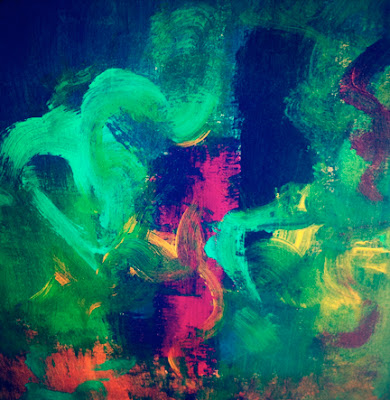(A quick update on what has kept me occupied these past days.)
(In the photograph: Black-tailed prairie dogs looking out for predators, eating, interacting with pups and generally being the awesome animals that they are.)
If one wants to study animal cognition– animals as thinking, complex beings– then a study of prairie dogs is inevitable.
For the past couple of months I’ve had the opportunity to observe black-tailed prairie dogs regarded as a keystone species of the short-grass prairie as some 160 other species depend on them for their survival. Moreover their burrows provide underground tunnels for water to flow, thus harvesting rainwater in a dry land with little rain.
Highly social beings, the prairie dogs are ground squirrels that live in colonies consisting of complex social systems spread over several geographic units, known as wards. Each ward contains several kingship units called coteries with a dominant male, several subdominant males, adult females and their pups. Through play, mock fights, mutual grooming and food sharing the pups learn the ways of the colony’s complex social system (more on that later). A highly interesting and engaging pursuit for any student of social structure and organizations.
Throughout the colonies they use visual cues and vocalizations to communicate. They have distinctive “barks” to indicate the nature of threat, whether it’s aerial or terrestrial and at what speed it is approaching. The all clear is a wheezy call accompanied by paws thrown in the air, much like a Mexican wave during a football match.
Symbolic language is considered the one thing that separates humans from non-human animals. Professor Constantine Slobodchikoff has been studying Gunnison's prairie dog communication for 30 years. He notes that predator-specific calls appear to be referential in nature, describing objects and events external to the animal. He has found that not only do prairie dogs have different words, or alarm calls, but also create new words to refer to new things in their environment and also can discuss things that are not present. Both these abilities were considered purely human. He has also found their language exhibits geographic variations, much like our dialects though prairie dogs from different regions can communicate with each other.
Persecuted as lowly rodents by ranchers and city planners because of their burrows, the prairie dog population has declined 95 percent since mid-19th century. Along with it other dependent species like the black-footed ferret, swift fox, and ferruginous hawk too have declined. Continued study of prairie dog language – its grammar and syntax– shows the limits and flaws of human understanding of other life forms.
I have just skimmed the surface of Professor Slobodchikoff's study. Anyone interested in Animal Cognition should read 'Cognition and Communication among Prairie Dogs' by C. N. Slobodchikoff: http://books.google.com/
Here's a link about the BBC documentary "Prairie dogs, talk of the town,": http://news.bbc.co.uk/earth/hi/earth_news/newsid_8493000/8493089.stm
(In the photograph: Black-tailed prairie dogs looking out for predators, eating, interacting with pups and generally being the awesome animals that they are.)
If one wants to study animal cognition– animals as thinking, complex beings– then a study of prairie dogs is inevitable.
For the past couple of months I’ve had the opportunity to observe black-tailed prairie dogs regarded as a keystone species of the short-grass prairie as some 160 other species depend on them for their survival. Moreover their burrows provide underground tunnels for water to flow, thus harvesting rainwater in a dry land with little rain.
Highly social beings, the prairie dogs are ground squirrels that live in colonies consisting of complex social systems spread over several geographic units, known as wards. Each ward contains several kingship units called coteries with a dominant male, several subdominant males, adult females and their pups. Through play, mock fights, mutual grooming and food sharing the pups learn the ways of the colony’s complex social system (more on that later). A highly interesting and engaging pursuit for any student of social structure and organizations.
Throughout the colonies they use visual cues and vocalizations to communicate. They have distinctive “barks” to indicate the nature of threat, whether it’s aerial or terrestrial and at what speed it is approaching. The all clear is a wheezy call accompanied by paws thrown in the air, much like a Mexican wave during a football match.
Symbolic language is considered the one thing that separates humans from non-human animals. Professor Constantine Slobodchikoff has been studying Gunnison's prairie dog communication for 30 years. He notes that predator-specific calls appear to be referential in nature, describing objects and events external to the animal. He has found that not only do prairie dogs have different words, or alarm calls, but also create new words to refer to new things in their environment and also can discuss things that are not present. Both these abilities were considered purely human. He has also found their language exhibits geographic variations, much like our dialects though prairie dogs from different regions can communicate with each other.
Persecuted as lowly rodents by ranchers and city planners because of their burrows, the prairie dog population has declined 95 percent since mid-19th century. Along with it other dependent species like the black-footed ferret, swift fox, and ferruginous hawk too have declined. Continued study of prairie dog language – its grammar and syntax– shows the limits and flaws of human understanding of other life forms.
I have just skimmed the surface of Professor Slobodchikoff's study. Anyone interested in Animal Cognition should read 'Cognition and Communication among Prairie Dogs' by C. N. Slobodchikoff: http://books.google.com/
Here's a link about the BBC documentary "Prairie dogs, talk of the town,": http://news.bbc.co.uk/earth/hi/earth_news/newsid_8493000/8493089.stm


















































